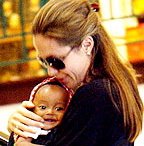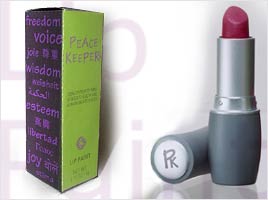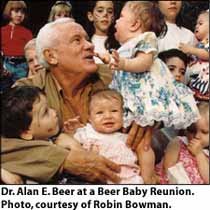Besides learning tae kwon do Korea, I was there for a reason. As a Fulbright scholar I was hoping to do some research for my novel, namely, to try to find and interview Korean women who'd given up children for international adoption. In case you don't want to read this long essay, let me summarize it here: before actually meeting these birth mothers, I only thought in terms of
family + adopted Korean child = happy family
as opposed to the more realistic and symmetrical equation of
family + adopted Korean child = happy family + (Korean birthmother - child)
-----------------------
A little background on our family's relation to adoption.
I'm from Minnesota, which has the largest number of Korean adoptees (KADs) in the nation, so naturally, I can count some people who are KADs or who are adoptive parents among my friends and close acquaintances; our neighbors adopted four children from Korea. My mother, who is a social worker, also founded a social service center for Koreans, and while her original intent was to help Korean immigrants, she ended up expanding the services to include the KAD community as well.
Lastly, we have a KAD in the family, the most direct connection, but obviously I am most mindful of his/her privacy.
That said, until 1997-98, when I received a Fulbright Fellowship for a project to interview Korean birth mothers for my novel, Somebody's Daughter, I had not, admittedly, given a lot of thought to the "other" side of adoption. Of course, in an abstract way, I realized adoption also involves loss, but I hadn't before heard the stark stories, told right to my face, right to my heart.
In Seoul, I worked in an unwed mother's home, where a majority of the women would be placing their babies for international adoption, a much smaller number would choose domestic adoption, and just a few would end up taking their babies with them. I did errands around the place, helped with the kimchi making, and when an opportunity to teach an English class came up, I gladly volunteered. Mostly, I found, my students were already thinking of what might happen, say twenty years down the line, if their children adopted in America might contact them, and so they wanted to learn basic English, things to say on the telephone.
My tenure there was for the better part of a year, and I got to know these women quite well. Many of them respectfully referred to me as "teacher," but some of the bolder ones called me, "big sister," and would stay after to chat about things — the latest soap opera on TV, popular music, movies. Many of the women there were clearly traumatized by what was happening to them, so no matter how friendly we became, I was careful not to discuss the actual situation, the decision about adoption that was to come.
Sort of as a reward, I suppose, the director of the home was instrumental in finding a number of women who had placed children for adoption to America twenty years earlier; these women, the director felt, were not only willing to speak with me, but they had had enough time pass and had processed the event and could now give me an honest appraisal of their experiences.
We had individual, secret sessions, and the birth mothers were quite amazing at how they didn't hold back any details and also encouraged me to ask them any question I wanted. Besides the fact that they wanted to help me, and their friend, the director, I came to see that the loss of their children — for many of them, a secret they'd held all those years — was an experience, perhaps the experience, that shaped them most profoundly. One woman even insisted I read her diary, from the day she both gave birth and gave up her son. I felt awkward about it, but she made a copy of it on the office's copy machine and pushed the pages into my hand.
When I expressed to her, and the others, my gratitude for opening their hearts in such a brave way (it should be noted that many of these women went on to marry, and their families had no idea about their previous pregnancies, so their meeting with me was not done without risk) they all, in their own way said they hoped that by helping give me an accurate — warts and all — picture of themselves as birth mothers, that perhaps I could write a story that might explain to their children the circumstances in which they found themselves, and how that led to the adoption.
The women felt strongly about refuting common notions that they "threw away" their children (indeed, in common speech, this is how "placing for adoption" is phrased) or that it was a frivolous decision. The women I interviewed all felt such a strong love for their absent children, even after all these years, and the way they described their pain at the separation was so vivid, it was as if no time had passed. Perhaps most poignantly, they all said they hoped their children in America might read the book and know how much they had been - and still were - loved.
When my fellowship ended and I came to the home to say goodbye to my students, one woman came up to me and said, "Big sister, please, please, please take my baby." I was so shocked, I didn't know what to say. To this day, it haunts me. I keep wondering if I should have done it.
I returned to America, translated my notes and hours of taped interviews, eventually finished my novel and had it published. In this time, the seed had been planted about adopting from Korea, specifically from that home where I had spent so many happy hours. After becoming so close to my students and to the women I interviewed, it seemed a natural impulse to add to our family by connecting ourselves to someone like them.
I should add that during my time in Korea, I also interviewed a large number of Korean adoptees, many of whom had returned to Korea specifically to search for their birthparents (Sarah, the character in my book, also goes on a search). Some adoptees were unhappy about their adoption experience and didn't get along with their adoptive parents. Some were just confused. Even the adoptees who seemed to have stable, loving relationships with their adoptive parents still had this almost ineffable air of sadness and loss about them.
Again, as I stated in the beginning of this piece, I used to view adoption solely from the point of view of the happy addition to the family. Now, it's more apparent that this happy addition comes at a loss for someone else. It's impossible to put a good/bad value on it — is it better for a child to be adopted than not adopted? Does international adoption self-perpetuate more international adoptions, when effort might be better spent looking into ways to encourage domestic adoption, or, perhaps even single parenthood? I don't have the answers for that, I don't think anyone does. Adoptees can't live two lives to figure out if it would have been better to stay in Korea, or be adopted.
It's very appropriate in this blog that I stand at the cusp of fertility and adoption. My experience with these women who so entrusted me with their stories indeed changed me. Now, I can no longer look at the adoption experience without also seeing the starkness of the loss. What seemed a simple decision before, now seems fraught with so many complex emotions. Possibly, deep down, I may wish that I can just have another biological child and forego having to make this decision.
Life takes you to places you'd never expect. Stay tuned.
 When I used to travel to Mexico, I loved seeing the huarache stores, where they would take a measurement of your foot, cut out a sole out of some old tire, and then attach the leather straps. So clever, so green--why don't we do that in the US? I kept wondering.
When I used to travel to Mexico, I loved seeing the huarache stores, where they would take a measurement of your foot, cut out a sole out of some old tire, and then attach the leather straps. So clever, so green--why don't we do that in the US? I kept wondering.
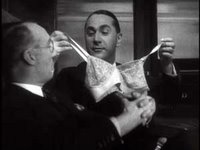



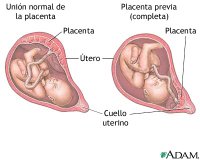









 The stuff is freeze-dried and handled with care--works for me.
The stuff is freeze-dried and handled with care--works for me.
